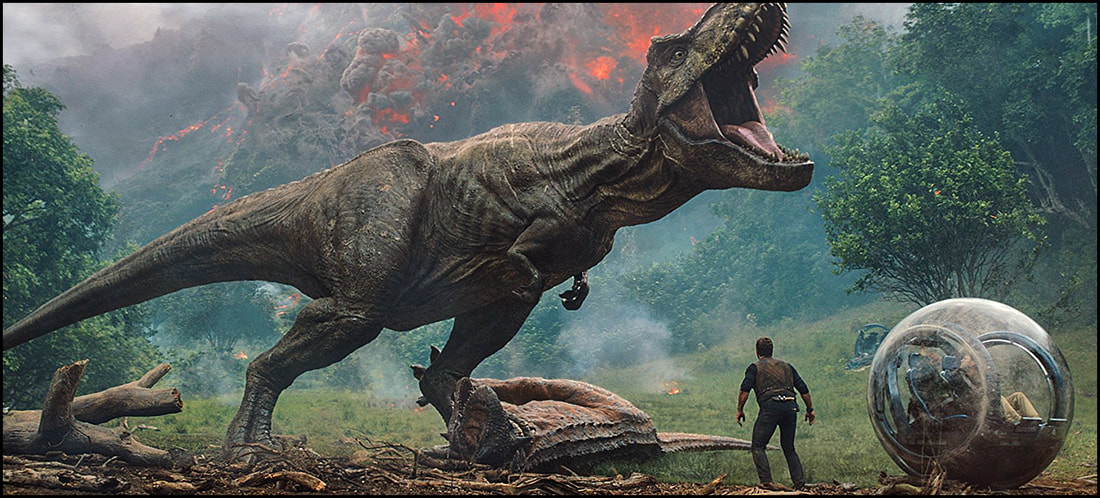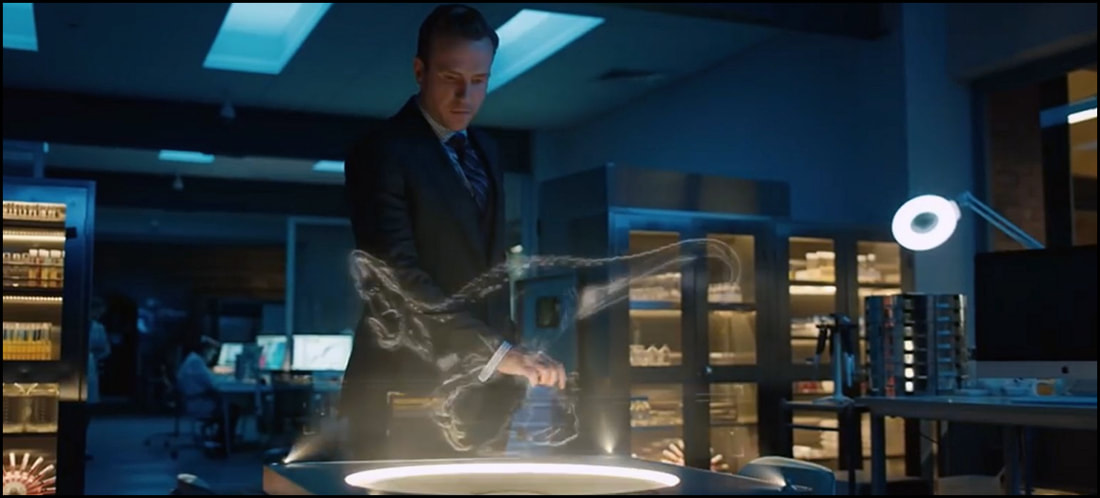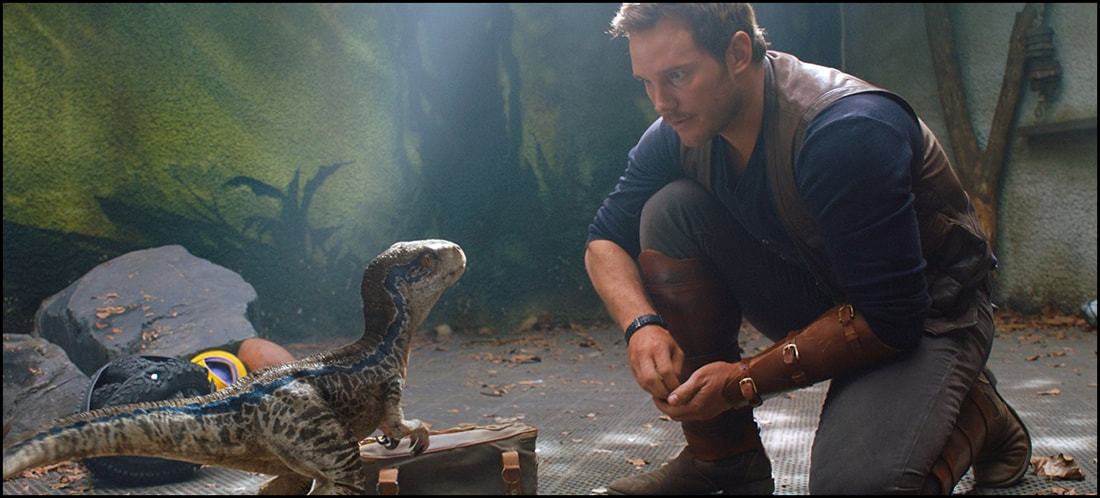Jurassic Lark: The Obvious De-Evolution of Jurassic World: Fallen Kingdom
Those that earn longevity generally tend to continue bringing something new to the table, maybe not exactly with each successive installment but – at the very least – they try to deliver something interesting every other picture. (Anyone heard of Star Trek’s cinematic success relying on its even-numbered releases?) Generally speaking, once audiences have “seen behind the curtain” of any particular property they tend to sour on the whole premise unless there is that special something extra that wasn’t there before … and that’s the problem in maintaining momentum with the whole Jurassic Park phenomenon: five pictures in, I find myself asking, “Haven’t we been here before?”
Jurassic World: Fallen Kingdom finds our beloved creatures on the verge of (dare I say?) extinction. A long-dormant volcano beneath the island is threatening to erupt, and the prospect of seeing these lumbering clones reduced to ash has put Jurassic World’s Claire Dearing (played by Bryce Dallas Howard) on a mission of securing a wealthy benefactor who’ll finance the world’s biggest relocation effort conceived by man. Naturally, a subplot involving the fabled ‘Blue’ – the world’s first intelligent velociraptor – brings hunky Owen Grady (Chris Pratt) back into the fold, and our heroes set sail for the island with a handful of supporting new players in tow.
Sadly, Isla Nublar only survives for a few obligatory action sequences – well-constructed with the right amount of tension and endless running by director J.A. Bayona – but who knew rescuing dinosaurs would be so easy? And most of it happened while the main cast wasn’t even involved! Eleven species are salvaged, and before you know it the cast and crew find themselves racing against time to stop the scheming ‘power-of-attorney’ to a dying millionaire from selling these survivors on the open market so that he can … erm … well, so that he can have control of even more global currency than he already does.
Say what?
Whatever the case, Kingdom still manages to hit its marks admirably, delivering scenes of dinosaur-on-dinosaur action its fans have come to expect. Producers spare no expense in keeping the thrills, chills, and spills up on the silver screen, even when it means sacrificing all logic by having Pratt’s Grady (an animal behaviorist by training) suddenly display the Alpha Male machismo needed to take out an entire military squad with fisticuffs at the auction gala. If there’s ever been better evidence that the young actor could take over the Indiana Jones franchise (should Steven Spielberg change his mind about allowing only Harrison Ford in the role), here it is; and I, for one, would probably give the kid a shot at the title.
Much to my surprise, Kingdom manages to squeeze in some of the same, human sentiments of true scientific wonder that made the original Jurassic Park (1993) such a delight: from time-to-time, videos of Grady’s attempts to domestic the velociraptors are used to advance understanding of where we are in the present film, and Pratt does a particularly winning job at conveying the surprise and spectacle of these little moments of discovery. Kingdom could’ve used more of that – those subtle epiphanies of interacting with a species long thought extinct – and maybe there’s even another film or two possible for budding storytellers out there who want to tell a more intimate tale as opposed to tentpole moviemaking. Those flicks might not gross billions, but they likely wouldn’t cost billions, either.
Jurassic World: Fallen Kingdom is a perfectly acceptable popcorn movie. Sit down, turn off your brain, delight at the visuals, enjoy the ride, and don’t expect too much. On that level, the film achieves whatever modest promise it makes to keep the viewer entertained. But like that prophetic warning to the decades old The Wizard of Oz? Don’t you dare look behind the curtain or you’ll be forced to abandon the wide-eyed innocence that brought you here in the first place.




 RSS Feed
RSS Feed